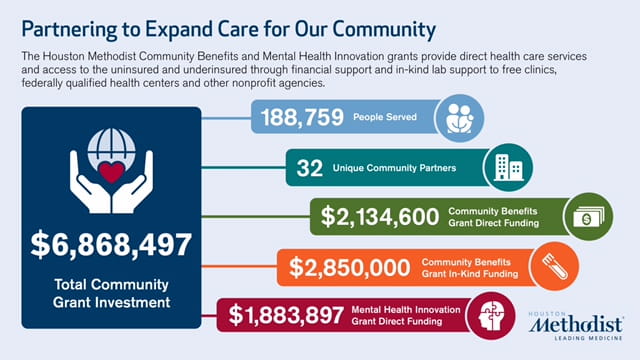Editor's note: March brings the return of some of Houston’s signature innovation events, plus insightful talks and celebrations in honor of Women's History Month. Here’s what not to miss and how to register. Please note: this article may be updated to include additional event listings.
March 3-4 — Houston MedTech Rodeo
Head to Armadillo Palace for the annual Houston MedTech Rodeo. The casual, Texas-themed conference brings together 350 medtech professionals who come from over 10 countries and 15 states to highlight Houston's growing medtech ecosystem. The event will feature panel discussions, startup showcases, networking sessions—plus, armadillo races, mechanical bull riding and live country music.
The event begins March 3 at Armadillo Palace on Kirby Drive. Register here.
March 4 – Humans of Healthcare
Houston Methodist Center for Innovation will present its new quarterly speaker series, Humans of Healthcare. The series will feature a panel of experts who will share about their career paths and discuss the nuances of the health care industry. This month's session will focus on IT. The panel will be moderated by Houston Methodist's Director of Innovation Murat Uralkan.
The event is Wednesday, March 4, from 5-6 p.m. at the Ion. Register here.
March 5 — The Future of Women in STEM
Celebrate Women's History Month at SUPERGirls SHINE Foundation's The Future of Women in STEM event, presented in partnership with the Ion. The event will feature speakers and panelists, including Kalila Winters Hines, senior public affairs advisor for Holland & Knight; Dr. Natacha Chough, NASA Johnson Space Center Flight Surgeon; and Andrea Course, rocket scientist and founder of Course Investments.
The event is Thursday, March 5, from 8:30-10 a.m. at the Ion. Register here.
March 10-12 — World Hydrogen & Carbon Americas
S&P Global Energy brings together two leading events—Carbon Management Americas and World Hydrogen North America—to form a new must-attend event for those in the hydrogen and carbon industries. More than 800 senior leaders from across the energy value chain will attend this event featuring immersive roundtable discussions, hands-on training, real-world case studies and unparalleled networking opportunities.
This event begins March 10 at the Marriott Marquis Houston. Register here.
March 20 — Ideas to Impact Accelerator Graduation and Showcase
Join Impact Hub Houston as it celebrates its inaugural Ideas to Impact Accelerator cohort. The 16-week accelerator is designed to help early-stage entrepreneurs validate their business models, strengthen confidence and gain traction. Hear short pitches and network with founders and mentors.
The event is Friday, March 20, from noon-2 p.m. at the Ion. Register here.
March 23-27 — CERAWeek 2026
CERAWeek 2026 will focus on "Convergence and Competition: Energy, Technology and Geopolitics." The industry's foremost thought leaders will convene in Houston to cultivate relationships and exchange transformative ideas during the annual event. CERAWeek 2026 will explore breakthroughs, cross-industry connections and powerful partnerships that are accelerating the transformation of the global energy system. 2026 highlights include an appearance by tech magnate Bill Gates.
This event begins March 23. Register here.
March 24-25 — 2026 Energy Venture Day and Pitch Competition
The Energy Venture Day and Pitch Competition, co-hosted by the Rice Alliance, Ion, HETI and TEX-E, offers two days of exciting pitches from more than 40 global energy ventures that are transforming the industry. On Tuesday, March 24, you can attend a fast-paced pitch preview event at the Ion, followed by the official Pitch Competition at 1 pm on Wednesday, March 25, at the George R. Brown Convention Center.
March 30-April 4 — H-Town Roundup
Celebrate innovation, entrepreneurship and collaboration at Houston Exponential's sixth-annual H-Town Roundup. During the free event series, previously known as Houston Tech Rodeo, attendees can expect insightful talks, workshops and networking events at venues across the city.
This event begins Monday, March 30. Register here.

